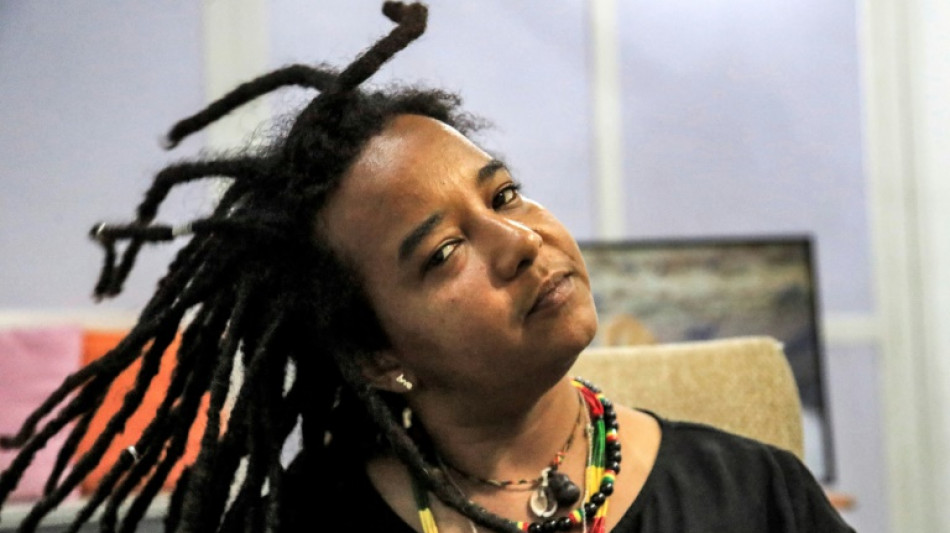
-
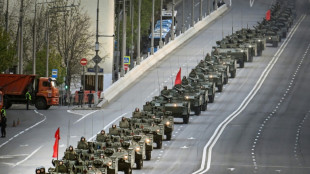 Ukraine fires drones on Moscow days before WWII parade
Ukraine fires drones on Moscow days before WWII parade
-
EU proposes ending all Russian gas imports by 2027

-
 UK, India strike trade deal amid US tariff blitz
UK, India strike trade deal amid US tariff blitz
-
Move over Met Ball. For fashion wow head to the Vatican

-
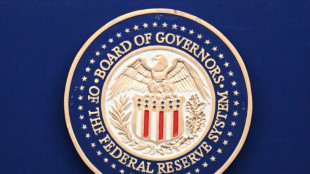 Stocks retreat as traders cautious before Fed rates call
Stocks retreat as traders cautious before Fed rates call
-
EDF complaint blocks Czech-Korean nuclear deal

-
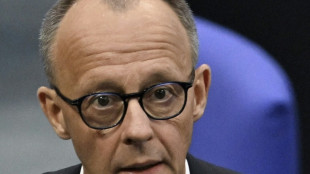 Germany's Merz faces new vote for chancellor after surprise loss
Germany's Merz faces new vote for chancellor after surprise loss
-
US trade deficit hit fresh record before new Trump tariffs

-
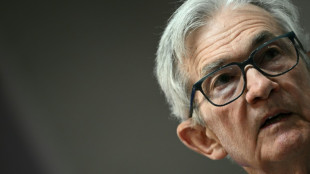 US Fed starts rate meeting under cloud of tariff uncertainty
US Fed starts rate meeting under cloud of tariff uncertainty
-
Trump's Aberdeen course to host revived Scottish Championship

-
 Argentina's 1978 World Cup winner Galvan dies
Argentina's 1978 World Cup winner Galvan dies
-
French lawmakers want Dreyfus promoted 130 years after scandal
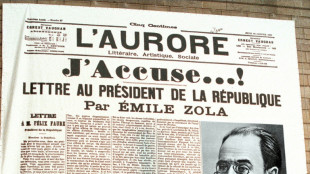
-
 AFP Gaza photographers shortlisted for Pulitzer Prize
AFP Gaza photographers shortlisted for Pulitzer Prize
-
Cristiano Ronaldo's eldest son called up by Portugal Under-15s

-
 Stocks diverge as traders await Fed rates meeting
Stocks diverge as traders await Fed rates meeting
-
Tesla sales fall again in Germany as drivers steer clear of Musk
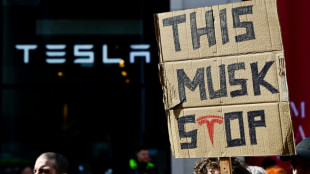
-
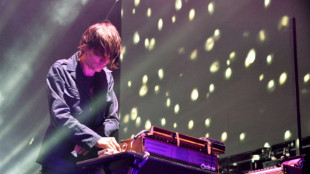 Radiohead's Jonny Greenwood says shows cancelled after 'credible threats'
Radiohead's Jonny Greenwood says shows cancelled after 'credible threats'
-
Hamas says Gaza truce talks pointless as Israel wages 'hunger war'

-
 Aussie cycling star Ewan announces shock retirement
Aussie cycling star Ewan announces shock retirement
-
Blow for Germany's Merz as he loses first-round vote for chancellor
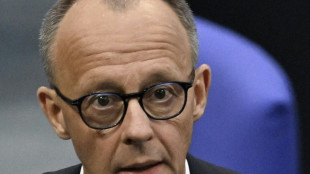
-
 EU to lay out plan to cut last Russian gas supplies
EU to lay out plan to cut last Russian gas supplies
-
Food delivery app DoorDash agrees to buy peer Deliveroo
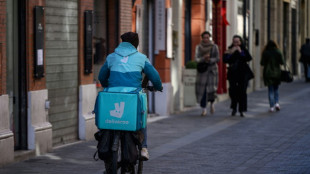
-
 Zhao's world championship win will take snooker to 'another level': sport's chief
Zhao's world championship win will take snooker to 'another level': sport's chief
-
Ukraine fires drones on Moscow days before Red Square parade
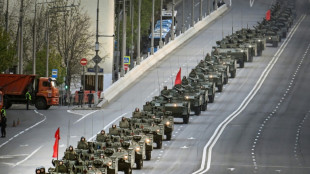
-
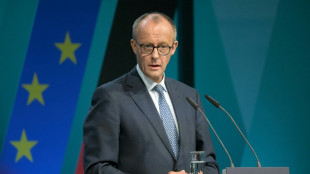 Blow for Merz as he misses majority in first vote for chancellor
Blow for Merz as he misses majority in first vote for chancellor
-
Putin gears up for 'grandest' Victory Day amid Ukraine conflict
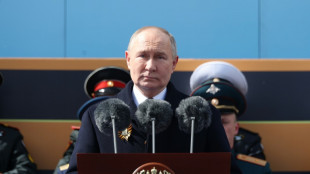
-
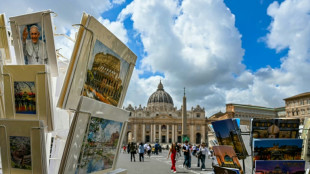 Cardinals to move into Vatican on eve of conclave
Cardinals to move into Vatican on eve of conclave
-
Romania names interim premier as turmoil deepens
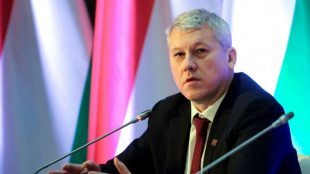
-
 DoorDash agrees £2.9 billion takeover of Deliveroo
DoorDash agrees £2.9 billion takeover of Deliveroo
-
Dollar recovers some losses, stocks mixed as traders eye tariff deals

-
 Hamas says no point in further Gaza truce talks
Hamas says no point in further Gaza truce talks
-
'Aussiewood' courts Hollywood as Trump film tariffs loom
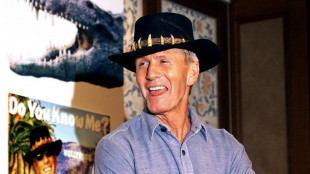
-
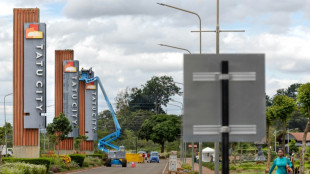 How a privately owned city in Kenya took on corrupt officials
How a privately owned city in Kenya took on corrupt officials
-
Ozempic slimming craze sweeps Kosovo despite side effects

-
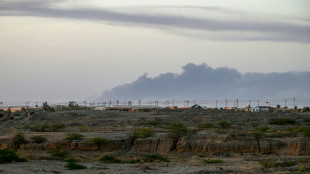 Drone strikes rock Port Sudan in third day of attacks
Drone strikes rock Port Sudan in third day of attacks
-
US President Trump and Canada's Carney set for high-stakes meeting
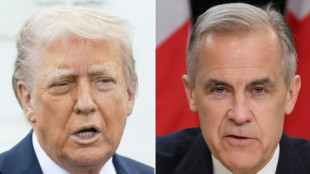
-
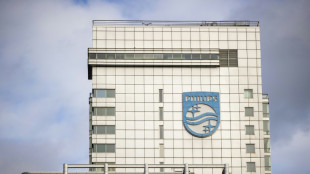 Philips turns in a profit but China, tariffs weigh
Philips turns in a profit but China, tariffs weigh
-
Drones hit Port Sudan airport in third day of attacks
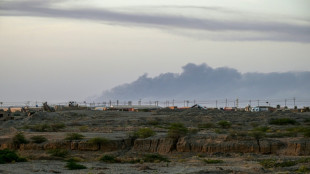
-
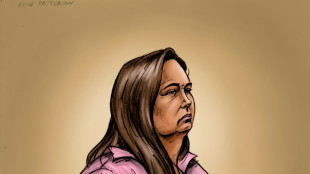 Australian mushroom murder suspect rejected help preparing meal: witness
Australian mushroom murder suspect rejected help preparing meal: witness
-
Jokic-inspired Nuggets stun Thunder, Knicks down Celtics

-
 India's woman fighter pilot trailblazer eyes space
India's woman fighter pilot trailblazer eyes space
-
'Shared dream': China celebrates Zhao's world snooker breakthrough

-
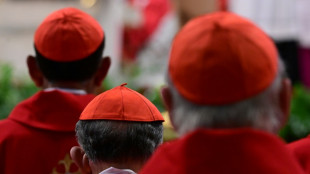 Wait for Vatican white smoke fires up social media
Wait for Vatican white smoke fires up social media
-
Sinner leading the charge in golden era for Italian tennis
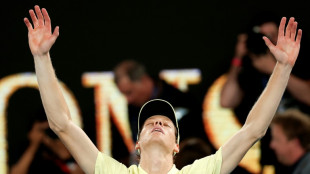
-
 Donnarumma stands tall on PSG's Champions League run
Donnarumma stands tall on PSG's Champions League run
-
Dollar recovers some losses, stocks gain as traders eye tariff deals

-
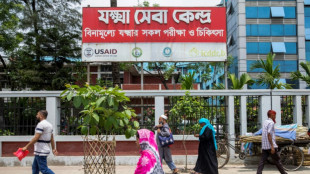 US aid cuts push Bangladesh's health sector to the edge
US aid cuts push Bangladesh's health sector to the edge
-
Prayers, pride in Philippine papal contender's hometown

-
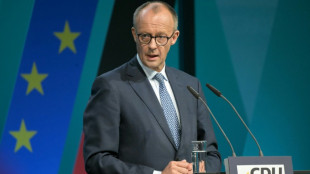 Germany's Merz to launch new govt in times of Trump turbulence
Germany's Merz to launch new govt in times of Trump turbulence
-
Brunson sparks Knicks in comeback win over Celtics


Sudan's Rastas fear new crackdown but vow to fight on
With his distinctive long dreadlocks and slouchy beanie, Abdallah Ahmed has always known his choice of lifestyle means trouble in Sudan, where long-oppressed Rastafarians say they are being targeted anew.
Ahmed, 31, has for years been enamoured of the Rastafari tradition which emerged in Jamaica last century and for him represents "telling the truth, being courageous, fighting for rights".
The number of Rastafarians in Sudan is unknown, and the community had largely lived underground under the autocratic rule of Omar al-Bashir, who was ousted in April 2019 following mass protests against his regime.
"We were very enthused after Bashir's fall," said Ahmed, a long-time Bob Marley fan also known as "Maxman", at an art exhibition where he was performing reggae music with his band.
"Musicians and artists flourished," he said, donning brightly coloured head and wrist bands.
But a brief whiff of freedom did not last as a post-Bashir transition to civilian rule was upended last year when army chief Abdel Fattah al-Burhan led a military coup.
Rastafarianism considers former Ethiopian emperor Haile Selassie to be its Messiah, but like many followers in Sudan, Ahmed told AFP that he saw it "not as a religion"
"It's a lifestyle, and it's me."
Under Bashir, community members were regularly harassed, had their heads shaved and faced persecution under stringent public order laws restricting how people dress or behave in public.
Ahmed said he had been arrested for drug possession in 2017 while performing music in public, and was flogged 20 times.
Followers of the Rastafari tradition have always been "easy targets" for security forces due to their looks, said Ahmed.
"It however never stopped us from growing our hair," he added.
"Some of us died while holding on to their personal lifestyle."
- 'Rasta never dies' -
The killings of several Sudanese Rastafarians in mass anti-coup demonstrations since Burhan's takeover last year have given rise to a popular protest slogan, "The Rasta never dies".
At least 121 people have been killed in the crackdown on protests since the October 2021 coup, according to pro-democracy medics.
Noting the "peacefulness and spontaneity" of the demonstrations, 35-year-old filmmaker Afraa Saad told AFP "this made us believe they were being especially targeted."
"I believe the slogan emerged to say that their good reputation will last."
Being a woman, Saad said she has faced greater scrutiny than men Rastafarians since she embraced the tradition during the height of the anti-Bashir demonstrations.
"The most persistent objection is why would a girl wear dreadlocks when there are other more acceptable hairstyles," she said, noting a "prevalent stereotype" tying dreadlocks with drug use and "unbecoming behaviour".
Saad sees her lifestyle choice as part of Sudanese women's uphill battle against strict policing of social mores since the Bashir regime.
Women were at the forefront of the mass protests against the longtime autocrat's rule, voicing their anger at decades of discrimination that severely restricted their role in society.
"I simply don't heed to this," Saad said.
"This is my identity and it's who I am."
For some in Sudan, wearing dreadlocks, listening to reggae music or having a Rasta-like lifestyle is merely an act of defiance.
Saleh Abdalla, 26, who wears his hair in short dreadlocks, said it was his way of protesting the October 2021 military coup.
"We are refusing all violations that take place on behalf of authorities," he told AFP during one anti-coup demonstration in the capital Khartoum last month.
"I will keep the Rasta (dreadlocks) until the regime falls."
M.Thompson--AMWN